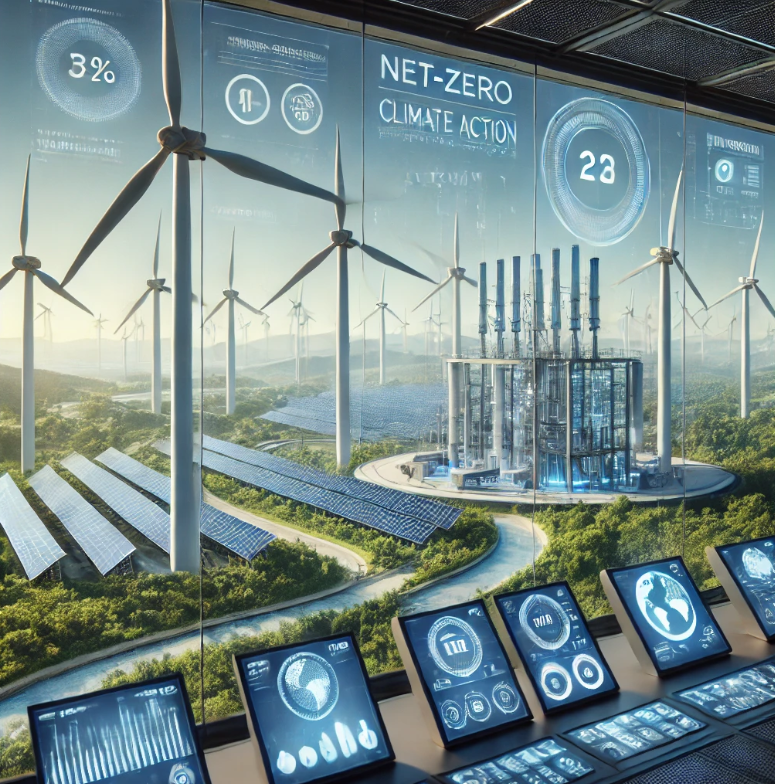Ørsted Sets Ambitious 2030 Climate Targets to Accelerate Net-Zero Transition
Introduction
In a decisive move toward achieving its science-based 2040 net-zero goal, Ørsted has announced new 2030 climate targets, reinforcing its commitment to tackling greenhouse gas (GHG) emissions across its full value chain. These targets, which align with the 1.5°C pathway, have been officially validated by the Science Based Targets initiative (SBTi)—a key milestone ensuring that Ørsted’s climate strategy aligns with scientific consensus.
Ørsted has already made substantial progress in reducing its direct emissions (Scope 1 and 2). Moving forward, the company’s primary focus will be on decarbonizing its supply chain (Scope 3 emissions)—an area that presents a greater challenge but is critical in achieving full-scale climate neutrality.
Decarbonizing the Supply Chain: A Strategic Approach
To address Scope 3 emissions, Ørsted is actively engaging with partners and suppliers to drive low-carbon solutions across the entire renewable energy value chain. This effort includes tackling emissions from the manufacturing, installation, and operation of renewable energy infrastructure, ensuring that every aspect of its business supports the transition to a net-zero economy.
💬 Ingrid Reumert, SVP of Global Stakeholder Relations at Ørsted, emphasized the importance of these new targets:
“We’re pleased to have the formal SBTi validation of our updated near-term climate targets, as this assures us that Ørsted’s business model and our immediate actions to reduce emissions are aligned with climate science. While our targets set the direction for our decarbonization efforts, it’s the actions that really count.”
Progress Through Innovation & Collaboration
Ørsted’s commitment to sustainability is not just about setting targets—it is about taking concrete action. In 2024, the company:
✅ Partnered with Dillinger to secure early access to low-emission steel, reducing the carbon footprint of infrastructure materials.
✅ Advanced blade circularity with Siemens Gamesa, incorporating recycled glass fibers into wind turbine blades at the Greater Changhua Offshore Wind Farm.
✅ Closed its last coal-fired power plant, preventing the release of approximately 1.2 million tonnes of CO₂ emissions annually.
“I’m proud that we – together with our partners – continue taking important steps to further bring down emissions in our supply chain,” Reumert added.
Scaling Renewable Energy While Reducing Emissions
In line with climate science, Ørsted has also introduced an intensity-based target to reduce emissions within the renewable energy value chain. This approach ensures that while the company scales up renewable energy production, it continues to decouple emissions from growth—a key principle in achieving sustainable expansion.
Ørsted’s 2030 Climate Targets Validated by SBTi 📊
Ørsted has committed to achieving the following verified emission reduction targets by 2030:
✅ Reduce Scope 1 and 2 GHG emissions by 96% per kWh from a 2018 baseline (equivalent to 99% reduction per kWh from a 2006 baseline).
✅ Reduce Scope 1, 2, and 3 GHG emissions (excluding sold products) by 77% per kWh from a 2018 baseline.
✅ Reduce Scope 1, 2, and 3 GHG emissions from “all sold electricity” by 86% per kWh from a 2018 baseline.
✅ Reduce absolute Scope 3 emissions from the use of sold products by 67% from a 2018 baseline.
✅ Reduce absolute Scope 3 GHG emissions by 50% from a 2018 baseline.
Conclusion: Leading the Charge for a Net-Zero Future
Ørsted’s bold 2030 climate targets underscore the company’s leadership in sustainable energy. By tackling emissions across its full value chain, Ørsted is setting an example for the renewable energy industry, proving that rapid decarbonization is possible with strategic partnerships, technological innovation, and science-backed goals. As global momentum towards net-zero intensifies, Ørsted remains at the forefront—turning ambitious climate commitments into tangible actions that drive real-world impact. Together, we are building a cleaner, greener, and more sustainable future. #ClimateAction #NetZero #SBTi #RenewableEnergy #Decarbonization #Sustainability #GreenFuture #CleanEnergy

